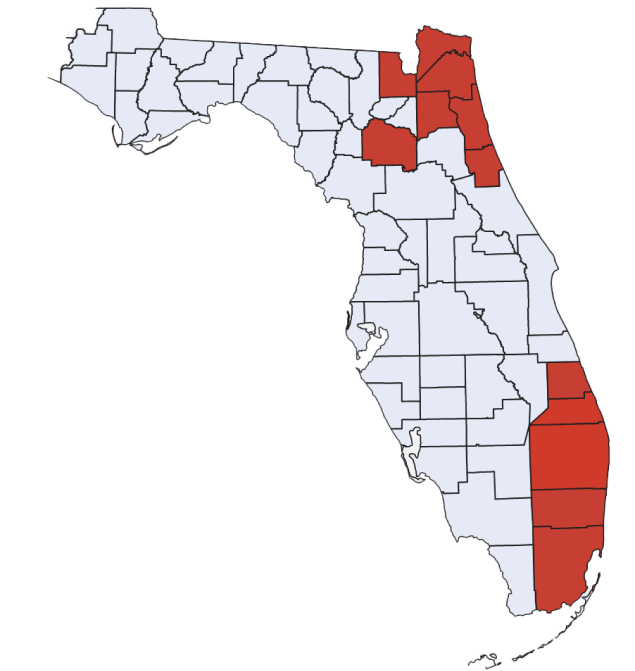If there is one thing that the Sunshine State has plenty of – other than sunshine – it is unrelenting humidity. Florida residents often find themselves in a battle to keep their homes, not only cool, but also free of excessive moisture. When it is too humid in your home, it certainly makes it uncomfortable; however, that is only the tip of the iceberg when it comes to the troubles humidity can cause. Here is everything you need to know about indoor humidity and your home.
Ideal Humidity Level for Florida Homes
The ideal humidity level for Florida homes to keep them comfortable should be between 45 and 55%. This can be challenging, especially on hot, sticky days when the outdoor humidity is over 90%. You also want to make sure that your humidity level is not too low either because that too can cause problems—including dry skin, respiratory issues, and an increased risk of static electricity in your home.
Typically, humidity levels are measured by a hygrometer. If you have a hygrometer, you can take it into different areas of your home and see that humidity may vary from room to room. The most humid areas in your home are likely your bathroom, laundry room, kitchen, and garage. Most modern smart thermostats can also measure the humidity in your home.
What Happens When Humidity Levels Are Too High
You already know that high humidity is a less-than-ideal situation for your home because it leaves you with that unpleasant sticky feeling. Any sweat on your skin cannot evaporate because there is already too much water in the air. However there are problems much more menacing than mild discomfort that await when your home is prone to chronic excess indoor humidity:
- Mold and mildew. A high-humidity home is susceptible to mold and mildew. They thrive in hot, sticky environments. These can potentially threaten the structural humidity of your home, leading to expensive repairs.
- Health problems. Humidity and mold and mildew growth can take a toll on your home’s air quality and cause health issues like congestion or coughing. People who are more sensitive to mold may experience respiratory infections or allergy problems. It can also cause asthma symptoms to worsen.
- Increased indoor air pollutants. Some building materials react with high humidity and those reactions can produce harmful pollutants, for instance, when building materials like pressed wood or foam insulation off-gas formaldehyde. Furthermore, dust mites also thrive in high humidity environments. If you have a pet, the level of dust mites essentially triples.
- Higher bills. When it is humid, you perceive temperatures to be higher than they are. For example, your thermostat may read 75, but you may feel like it’s closer to 80. This will, in turn, cause you to blast your AC at lower temperatures for longer in order to get comfortable. This will cause your energy bills to skyrocket.
Dehumidifying Your Home
There are multiple ways to deal with excess moisture in your home. One trick is using fans to keep the air moving in your home. This helps dry out moisture and keep you and your family more comfortable. Running your exhaust fans in the bathroom or kitchen when showering or cooking can help remove water vapor and steam from the air. Taking shorter, cooler showers can help too.
Did you know that your HVAC system plays a big part in moisture control in your home? Your heat pump or central air conditioner removes a great deal of moisture from the air. Therefore, it is important to keep your HVAC equipment well-maintained so that it can do its job efficiently and effectively. However, if your current HVAC equipment is not doing its job of controlling your home’s humidity level, it is time to call in a professional and consider having a dehumidifier installed.
In the Jacksonville area, Snyder Heating and Air Conditioning is the HVAC company to trust with your home’s humidity issues. We offer solutions like dehumidifiers and air conditioner upgrades that can improve the comfort of your home for you and your family. Contact us to schedule your appointment today.
Tags:
humidifier,


